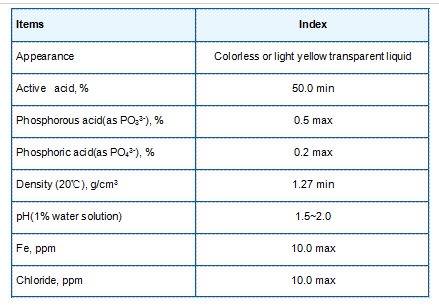flocculation chemicals
Understanding Flocculation and the Role of Flocculation Chemicals
Flocculation is a crucial process in various industries, particularly in water treatment, wastewater management, and mineral processing. It involves the agglomeration of fine particles into a floc, which then can be easily removed from a liquid. This process not only enhances the clarity of the water but also aids in the efficient removal of contaminants. Central to this process are flocculation chemicals—substances that facilitate the formation of these larger particle aggregates.
Flocculation chemicals are typically divided into two main categories organic and inorganic. Organic flocculants, such as polyacrylamides, are widely used due to their effectiveness in promoting the flocculation of fine sediments and organic materials. These synthetic polymers are advantageous because they can be tailored to achieve specific properties, such as charge density and molecular weight, thus enhancing their performance across a range of applications.
Understanding Flocculation and the Role of Flocculation Chemicals
The selection of suitable flocculation chemicals depends on several factors, including the nature of the effluent being treated, the desired quality of the treated water, and economic considerations. Additionally, the effectiveness of these chemicals can be influenced by factors such as pH, temperature, and the type of contaminants present in the water.
flocculation chemicals

One key aspect of flocculation is the importance of dosage. The appropriate amount of flocculant varies based on the concentration of particles in the water and the specific characteristics of the flocculant used. Insufficient dosages may lead to ineffective flocculation, while excessive amounts can result in the formation of too large flocs, which may not settle properly.
Flocculation is not only limited to water treatment but also finds applications in various industries such as food processing, ceramics, and even pharmaceuticals. In the food industry, for example, flocculation can help in the clarification of juices and oils, ensuring a cleaner and more appealing final product.
In recent years, environmental considerations have driven research into more sustainable flocculation chemicals. Natural flocculants derived from plant materials offer an eco-friendly alternative to synthetic options. For instance, chitosan, which is obtained from crustacean shells, has shown promise due to its biodegradable nature and effectiveness in various applications.
In conclusion, flocculation is an essential process for enhancing the quality of liquids across different industries. The use of flocculation chemicals plays a pivotal role in facilitating this process. Understanding the types, mechanisms, and appropriate applications of these flocculants is vital for optimizing the treatment processes and ensuring high-quality outcomes while considering environmental sustainability. As industries continue to innovate, the future of flocculation chemicals looks promising, with ongoing developments aimed at improving efficiency and reducing environmental impacts.
-
Water Treatment with Flocculant Water TreatmentNewsJun.12,2025
-
Polymaleic AnhydrideNewsJun.12,2025
-
Polyaspartic AcidNewsJun.12,2025
-
Enhance Industrial Processes with IsothiazolinonesNewsJun.12,2025
-
Enhance Industrial Processes with PBTCA SolutionsNewsJun.12,2025
-
Dodecyldimethylbenzylammonium Chloride SolutionsNewsJun.12,2025





